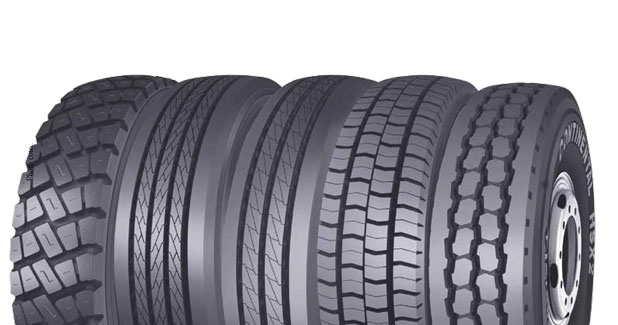
OTRs Rolling On
The recent policy initiatives in infrastructure and mining sectors have given these segment a thrust in their growth process, which were otherwise stagnant in the past few years. The demand of OTR tyres is dependent on the demand for equipment and the developments in the infrastructure, industrial and mining sectors. Rajesh Bagrecha, Country Sales Manager, Camso, says, ?With the Indian government pushing for new reforms and infrastructure development picking up all around, Camso is looking at India as a very important market with potential to become the world?s largest equipment manufacturing hub in the years to come. The Government of India?s Make-in-India initiative is a major step in this direction.?
The market
The annual requirement for CVT tyre is approximately 14.32 million units of which approximately 30 per cent is for radial tyres. Mallika Rawal, National Marketing Manager, Truck Tyres, India, Continental, says, ?We can foresee the radialisation rate increasing further and will be going up to 34 per cent next year. However, India is still a largely bias tyres driven market. Even today we see maximum demand coming from the bias tyres with construction segment being the front runner.?
Tyres that provide traction, stability, load-carrying capacity and durability are the major backbone of all machines required in industrial and construction equipment. Tyre manufacturers in India have introduced products of the above features over the years. Rawal elaborates, ?Within Continental Tyres, we have a separate vertical called Continental Specialty Tyres (CST) which takes care of OTR segment. Globally, we are well entrenched in the CE space but in India we are importing the products completely and selling against confirmed bookings only.?
Although tubeless tyre is a superior technology which is now being used worldwide, it is still very recent in India. Says Rawal, ?In India, tubeless tyres are still majorly used in normal load application with Indian customers and markets are just getting ready for them. In terms of Indian construction market, it will take much longer time to shift to the same as this segment is meant for rough usage and involves heavy loads too. So the acceptance of radial tubeless tyre usage is very low. When it comes to long haul highway (truck) segment, the radial tyre range is still acceptable. To give an example, for coaches, the basic priority is safety and therefore tubeless tyres are preferable.?
Solid tyres
Solid tyres are ideally suitable for short haul, high load, low speed machines working in yards, construction sites and other confined areas with harsh underfoot conditions. These are largely puncture-proof and they also significantly improve occupational safety as there is no possibility of tyre blowout related accidents. Solid tyres offered by Trident International have an abrasion resistant tread that is specifically compounded for use on a wide range of working conditions that skid steer loaders are used in.
Though puncture proof and have less maintenance compared to other types, solid tyres are heavy and causes for the machine consume more fuel. Also in uneven terrains, the vehicle movement will be bumpy and causes more vibration which affects the machine?s performance in the long term. This also gives the operator/driver a tough time. Trident?s solid skid steer tyres are available in a range of traction lug and smooth tread patterns. The cut-resistant traction lug tyres are suitable for use on rough terrain, and uneven, semi-prepared surfaces typically found on construction, mining and demolition sites. The tread design provides traction in the dirt and extended tyre life on uneven surfaces. Camso, a world leader in the design, manufacturing and distribution of off-road tyres, has a wide range of tyres which offer puncture proof solution of solid tyres with the cushioning comfort of a pneumatic tyre. ?The apertures in these ?SolidAir? tyres also help reduce the weight enabling lower costs along with improved fuel efficiency,? says Bagrecha.
Challenges
The biggest challenge all tyre manufacturers facing is the dumping of cheaper Chinese tyres into Indian market. ?The anti-dumping duties, which were imposed on such tyres have been done away with further reducing the price that customers have to pay for them. At Continental, we are a strong proponent of the Make in India campaign, but for Indian players to have a fair chance against the Chinese brands, we need to level the playing field. To manufacture in India, we are paying for the steadily increasing manufacturing costs as well as high quality standards which are held dear by Continental.? Elaborating on the issues, she adds, ?Even though in the long run the product performance of the Chinese imports may be significantly less than the premium domestic tyres adding to the issues of road safety, customers can get easily lured by the low initial investments involved in purchasing them. So we need government actions and support here to stop the Chinese tyre manufacturers from taking over the Indian tyre industry and pushing locally producing multinationals out of the country,? Rawal points out.
OTR manufacturers are keen on Indian market in the coming years. However, the growth will depend on how soon and effectively does the infrastructure and mining projects take off and sustain in the coming years.
Solid Tyres - pros & cons
Advantages
- Puncture proof
- No tyre blowout-related accidents
- Longer lifespan
Disadvantage
- Prone to rollover
- Heavy compared to pneumatic tyres
- Causes more fuel consumption
- Causes more vibration to the machine on uneven terrains ?Cannot be repaired once the rubber is chipped off.


 +91-22-24193000
+91-22-24193000 Subscriber@ASAPPinfoGlobal.com
Subscriber@ASAPPinfoGlobal.com